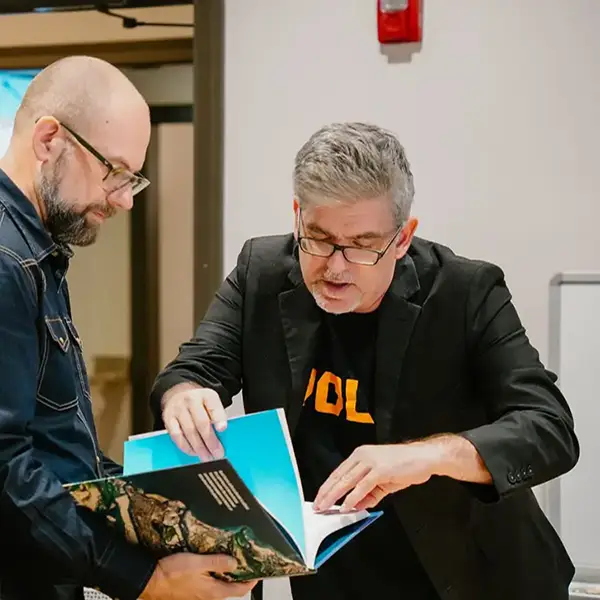

Spring 2024 Newsletter
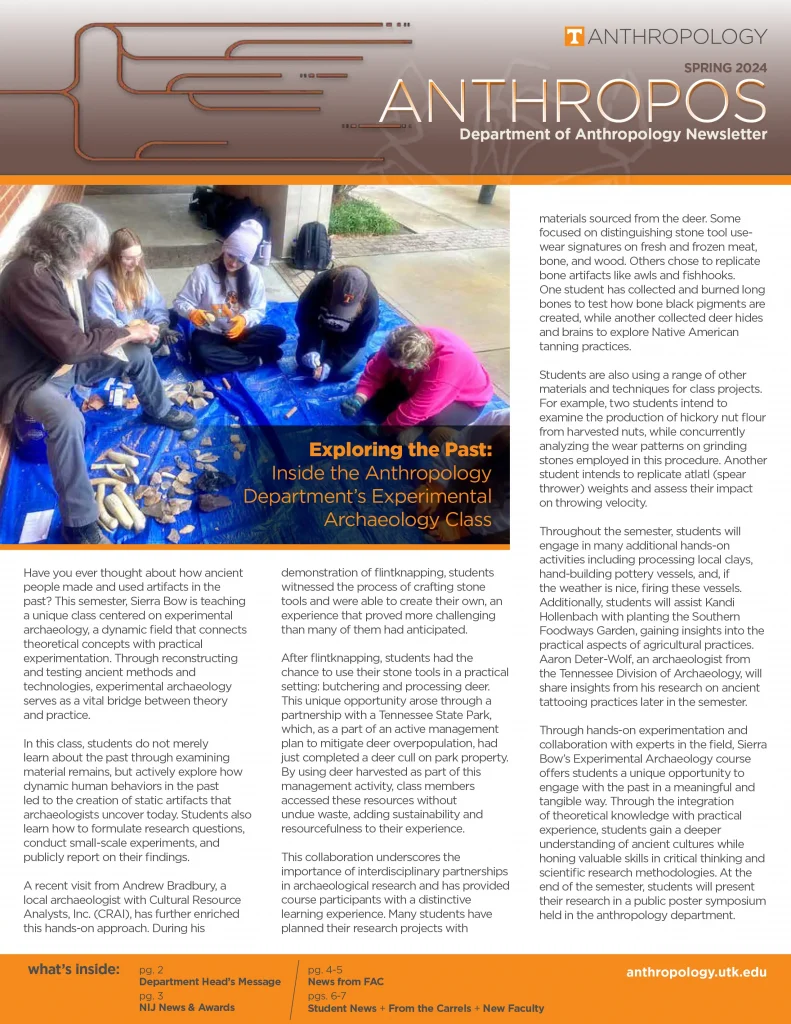
Articles:
- Exploring the Past: Inside Anthropology’s Experimental Archaeology Class
- Message from Department Head Barbara Heath
- From the Carrels
- Student Excellence
- Graduate Students in the News
- National Institute of Justice Director honors Anthropology Faculty with Campus Visit
- News from the Forensic Anthropology Center
- Welcome New Faculty
- Spotlight on Staff
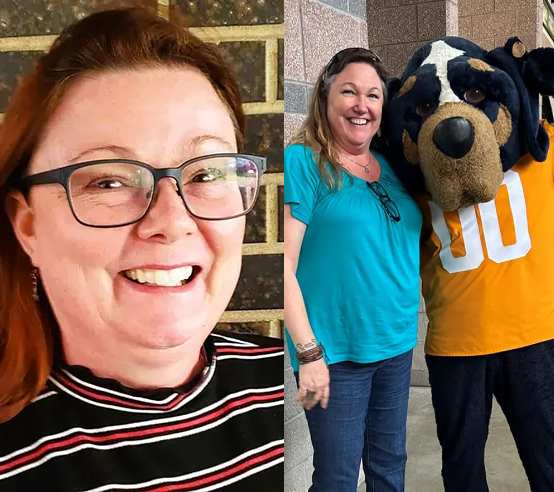
Spotlight on Staff

Anthropology faculty, staff, and students welcomed new administrative assistant Helen Spencer to our department in June. She works closely with students and faculty to facilitate all aspects of the graduate program and undergraduate registration, provides timetable support, and monitors the department’s website. Helen was born in Alabama. When she was four, her family moved to Iran, where her father worked as a supervisor with Sikorsky. She served in the US Coast Guard and received her associate degree in 2011. Spencer plans to continue her education here at UT. She enjoys spending her leisure time with her two daughters, painting, wood working, and walking along the riverbanks of East Tennessee.
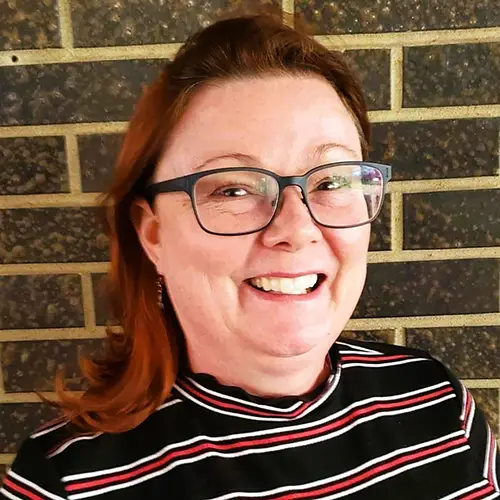
Joey O’Dell joined the department as Archaeological Collections Manager at the archaeology curation facility at Middlebrook Pike in May. She has spent this year consolidating, organizing, and moving equipment to make space for an expanded team working to fulfill our legal and ethical responsibilities under the Native American Graves Protection and Repatriation Act (NAGPRA). The reorganization will also result in a better integration of laboratory and curation spaces.
Over the next few months, O’Dell will work with campus and community partners to focus on preparing collections whose management falls outside of NAGPRA for further academic research and begin updating the archaeological collections database to inform future research and increase the availability of collections for professional and student analyses and community-based exhibits. She is working closely with Ellen Lofaro, Anthropology’s Curator of Collections, and our Curation Committee to develop a set of updated curation policies for the department.
O’Dell holds a bachelor’s degree in anthropology, with a focus in archaeology, and a master’s degree in public history from Middle Tennessee State University (MTSU). As a student, she worked at the Center for Historic Preservation and served as the manager of the Archaeology and Public History Labs at MTSU for three years. She is a founding member of the new Community of Practice for Southeast Curation Care which aims to bring curation professionals together to share information, develop ideas, and create solutions for common collections care challenges.
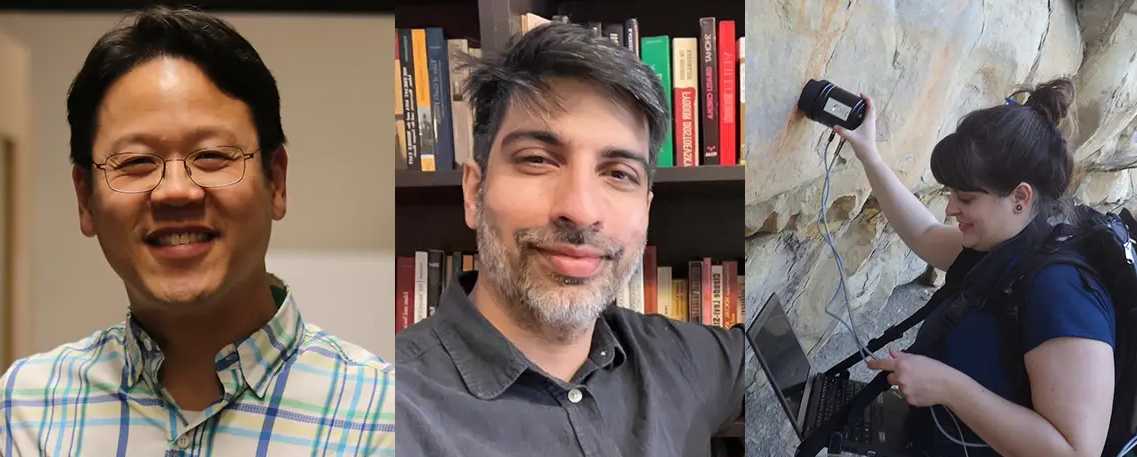
Welcome New Faculty

Arsalan Khan has joined the department as Associate Professor after previously teaching at Union College in Schenectady, NY. His research is situated at the intersection of semiotics, ritual, gender, and ethics, themes that he has explored in the context of the Islamic revival in Pakistan. Through an examination of the transnational Islamic piety movement the Tablighi Jamaat in Pakistan, he explores the broader relationship between Islam, secularism, and modernity. Khan’s research shows how a distinct form of hierarchical pious relationality, crafted in ritual, structures the Tablighi congregation and how it becomes the ground upon which Tablighis transform domestic and public life and create an Islamic moral order. His book manuscript, The Promise of Piety: Islam and the Politics of Moral Order in Pakistan is newly published by Cornell University Press.
Khan has returned to Karachi during spring semester to explore the creation of citizenship and belonging. For his next book project, Islam, Citizenship and Moral Responsibility in Karachi’s Climate Crisis, he is examining how various social groups materialize moral claims to citizenship and belonging through public performance and patronage by drawing on democratic, legal, and Islamic values. He will then document how provincial officials and bureaucrats respond to such claims. More broadly, Khan’s project explores the constitution of democratic and religious citizenship in Pakistan in the context of the climate emergency.
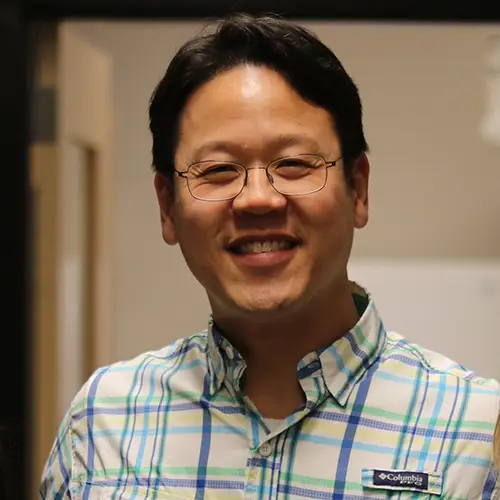
Yangseung Jeong is a biological anthropologist who specializes in forensic anthropology. He has been a fellow of the Oak Ridge Institute for Science Education at the Central Identification Laboratory of the Defense POW/MIA Accounting Agency (DPPA), and a professor at Middle Tennessee State University, before joining our department as assistant professor in 2024. He currently serves as an external consultant for the Korean National Policy Agency and contributes to the editorial board of Anatomy & Biological Anthropology.
Jeong’s research focuses on developing and validating population-specific methods for biological profile reconstruction, and on understanding the interactions between human body decomposition and the surrounding environment. He has established the Korean CT Scan Database with 1,500-plus whole-body CT scans and the Forensically Important Fly (FIF) Collection comprising 3,000-plus blowflies from the Anthropology Research Facility (ARF). The American Academy of Forensic Sciences has recognized his recent project on a digital pair-matching technique using CT scans, earning him the prestigious Ellis R. Kerley Research Award in 2022. Pair-matching is a method used to identify individuals in contexts such as mass graves or resulting from mass tragedies, in which human skeletal remains have been comingled. Currently, he collaborates with the DPPA to develop a pair-matching method specific to their agency. He aims to broaden his research scope at UT through collaborations with colleagues and graduate students, offering diverse research opportunities to interested students.
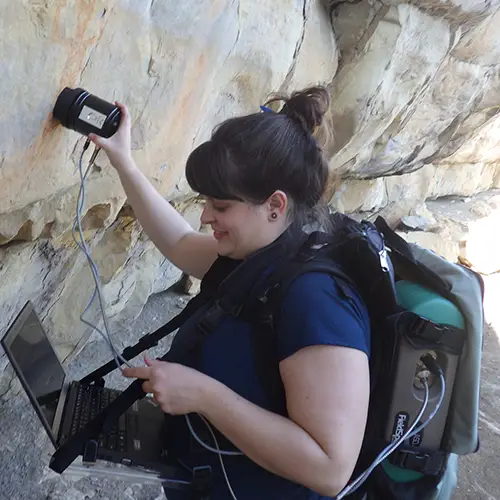
Sierra Bow, a new lecturer in the department, is an anthropological archaeologist who integrates techniques and approaches from the physical, chemical, and earth sciences to address archaeological questions and problems. Her primary research delves into pre-contact cultures within the Southeastern United States, utilizing innovative, non-destructive techniques to understand the material properties of ceramics and rock art pigments. In addition to teaching the introductory course in archaeology, Bow teaches a variety of archaeology classes including southeastern archaeology, experimental archaeology, ceramics, and world rock art. She oversees the analytical archaeology laboratory, equipped with a portable X-ray fluorescent spectrometer (PXRF) and fiber-optic reflectance spectrometer (FORS), where she guides both undergraduate and graduate students Beyond academia, Bow is engaged in public outreach to foster a greater understanding of archaeology among diverse audiences.
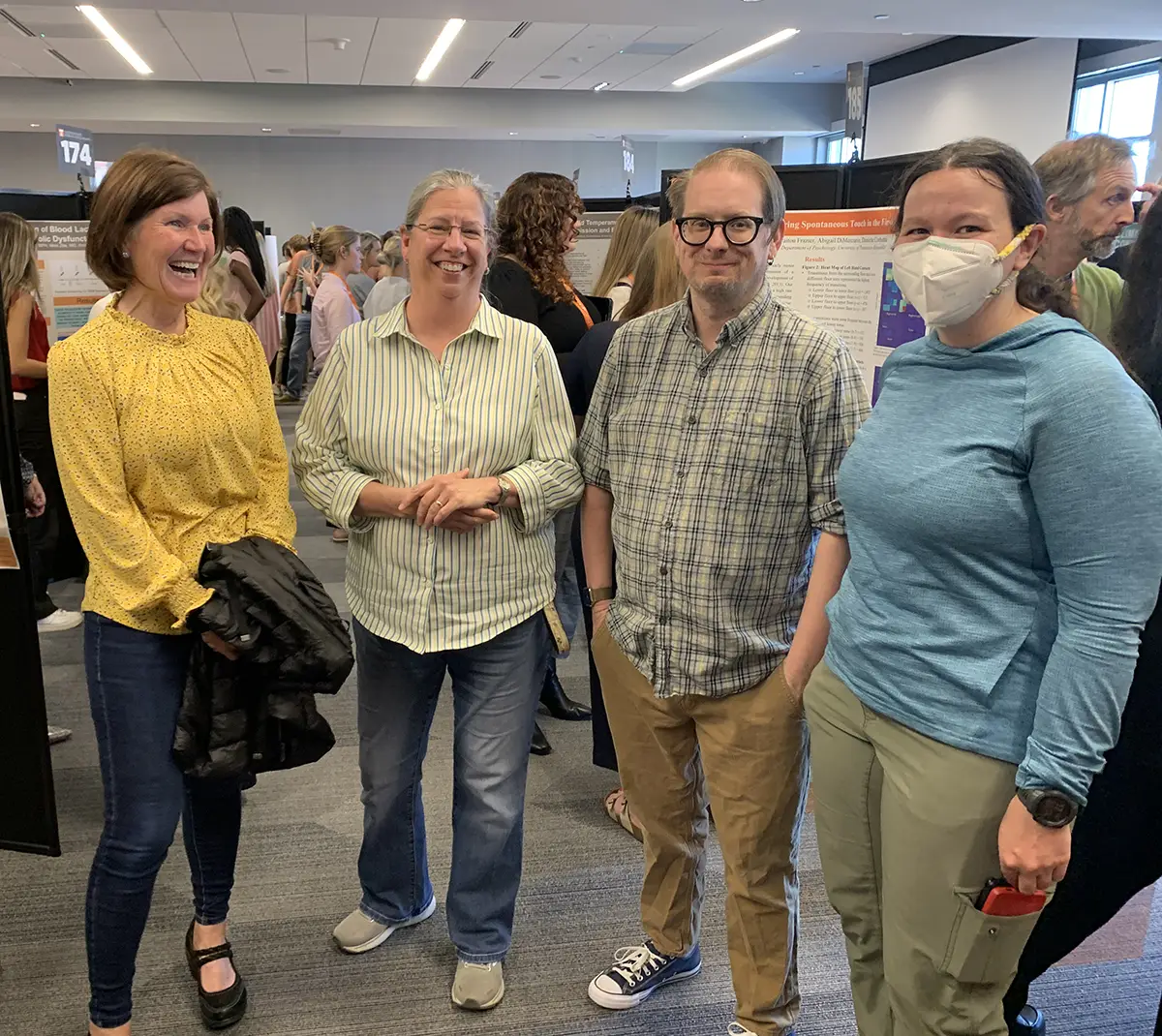
News from the Forensic Anthropology Center
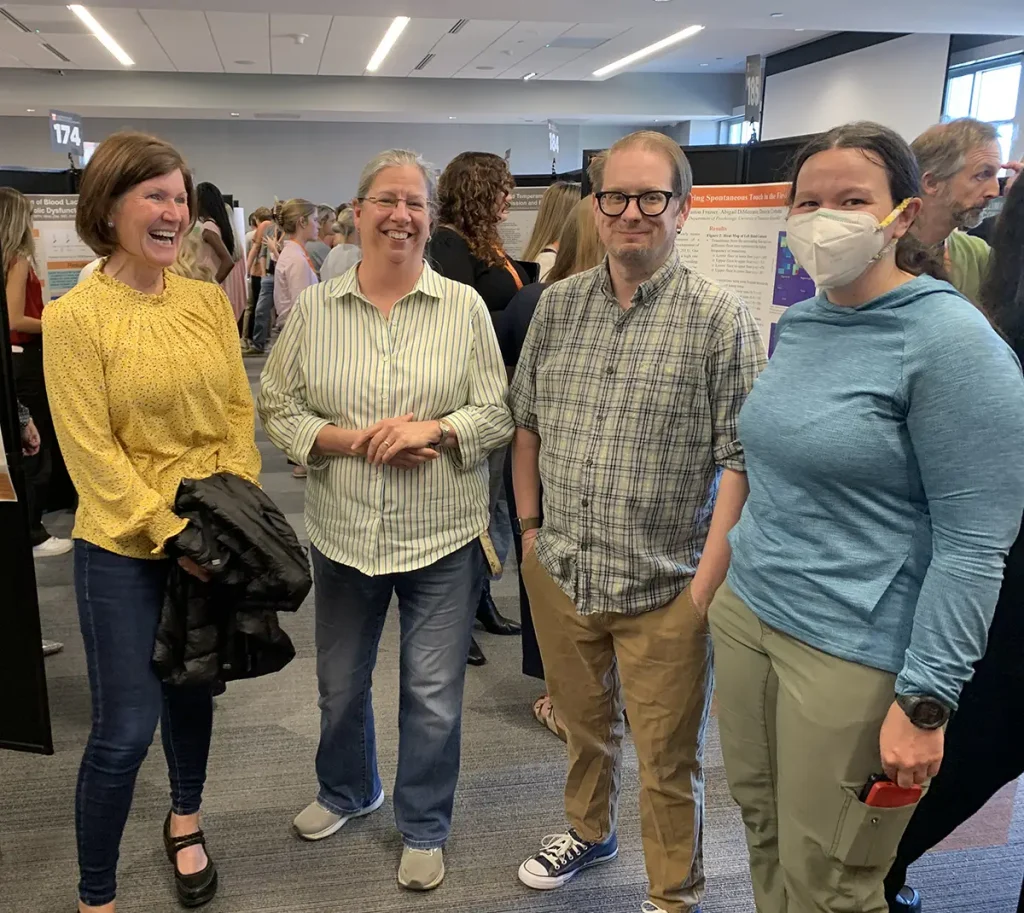
The FAC congratulates Lee Meadows Jantz on her retirement from UT. Jantz has tirelessly served the FAC for over 20 years and now enjoys her status as Distinguished Lecturer Emeritus. She is keeping busy helping with forensic casework, maintaining her work with the National Center for Missing & Exploited Children, and visiting her children and grandchild.
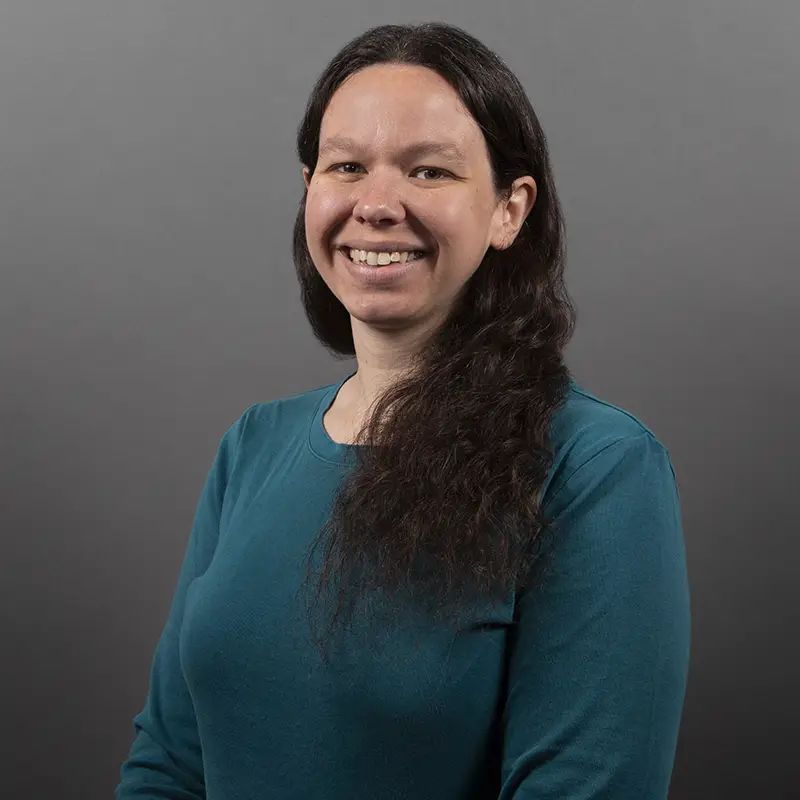
Mary Davis is the new FAC Research and Facilities Manager. She joined the FAC in 2017. In her new role, she leads the Body Donation Program, oversees the Anthropology Research Facility and Bass Building spaces, and does a million other things. We are currently hiring a new research associate and look forward to expanding the team in the near future.


Stephanie Goble (left) and Erin Patrick (right) serve as research assistants on Dawnie Steadman’s Biometrics Project. This project aims to gather data which will increase the amount of time that biometric markers (i.e., iris scans, facial photographs, and fingerprints) can be used after an individual’s death to identify them. Both Goble and Patrick received their bachelor’s degrees in Anthropology. They also help with the Body Donation Program and other FAC projects.
Dawsen Hairston and Halleigh Phelps each received funding through UT’s Office of Undergraduate Research and Fellowships to serve as department research assistants. They assist Mary Davis in researching the efficacy of mulch and compost in increasing the rate of decomposition of mummified remains. They will present their research this spring at UTK’s EURēCA symposium.
We are excited to be breaking ground this year on the new Forensic Anthropology Laboratory, which will be attached to the William M. Bass Forensic Anthropology Building. This building is dedicated to forensic casework and brings us another step closer to laboratory accreditation. Work is expected to be completed in 2025.
The FAC hosted the National Institute of Justice (NIJ) Director and staff in December 2023. The NIJ has been the primary sponsor of our research for over twenty years. Our current scope of research includes remote sensing, microbiome/necrobiome, DNA degradation, fire trauma, biometrics, AI use in predicting the postmortem interval, soils and plant sciences, and entomology and entomotoxicology.
Joanne Devlin is an active consultant for the National Center for Missing & Exploited Children. Both she and Dawnie Steadman are Diplomates-at-large for the American Board of Forensic Anthropology Board Exam Committees, and Steadman was selected as a member of the Anthropology Section of the Organization of Scientific Area Committees that provides standards for the field.
Five students presented papers and posters this year and one former student won the Ellis R. Kerley Research Award at the American Academy of Forensic Sciences annual meeting. In addition, Joanne Devlin and Giovanna Vidoli joined partners at Arizona State University to present a sold-out workshop entitled, “The Impact of Burning on Skeletal and DNA Evidence.”
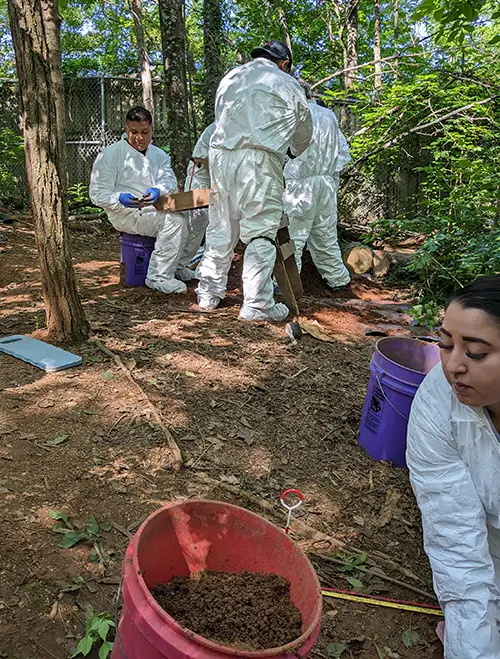
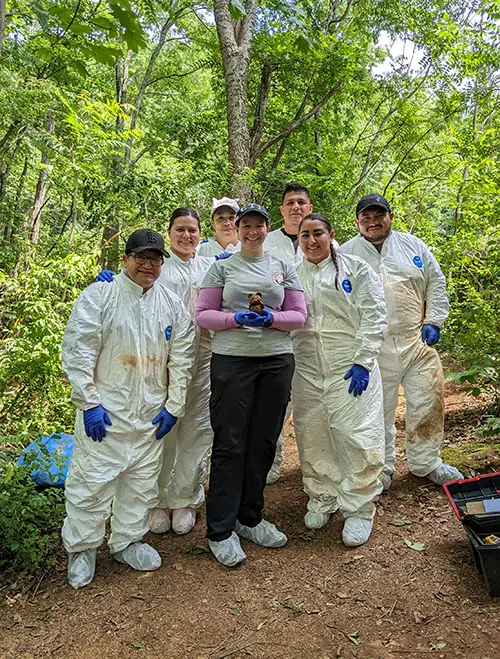
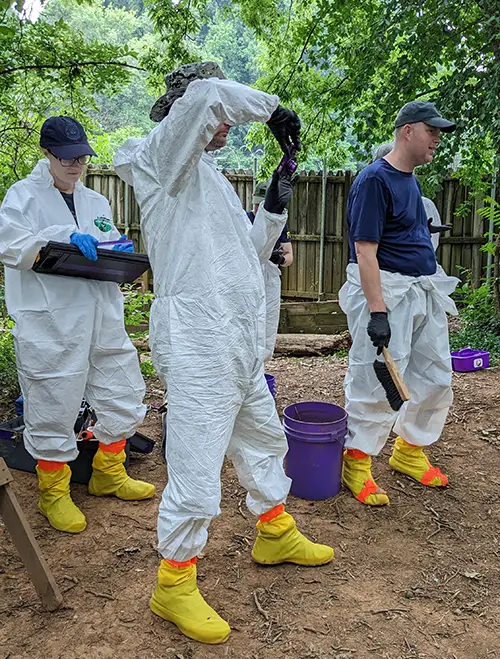
The FAC annually hosts a variety of short courses for law enforcement officers, forensic professionals, and students in forensic programs at other universities around the globe. In 2023, the FAC welcomed 254 course participants to UT for training in techniques ranging from the recovery of human remains to the identification of non-human bones. The agencies that came to the FAC included the National Park Service, Tennessee Bureau of Investigations, and three different FBI teams. They also hosted Lewis University and Utah Valley University. The FAC is continuing its relationship with the Bureau of International Narcotics and Law Enforcement Affairs and hosting professionals from Mexico twice a year to hone their skills in burial search, burial excavation, and bone identification. We are looking forward to our summer 2024 courses where we will continue to train forensic professionals from around the world.
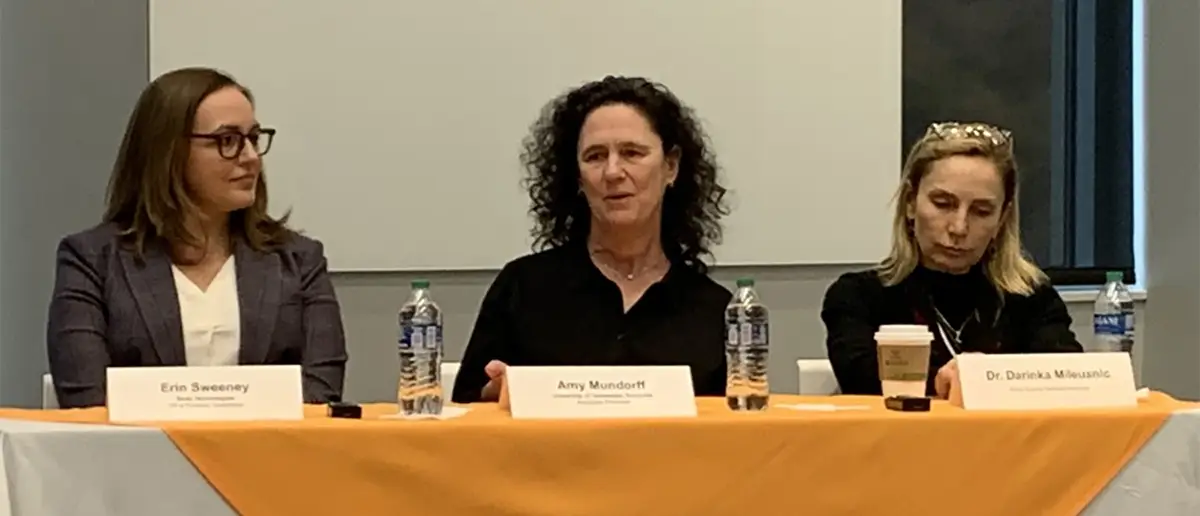
National Institute of Justice Director honors Anthropology Faculty with Campus Visit
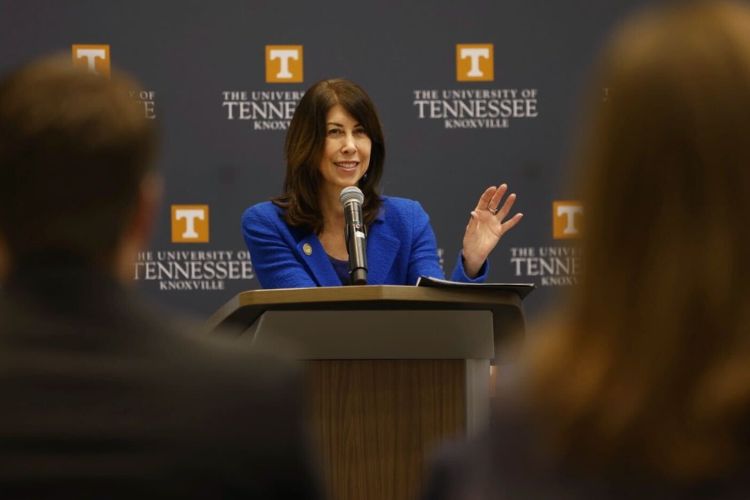
UT hosted a delegation from the National Institute of Justice (NIJ), the research and development arm of the US Department of Justice, on December 4, 2023. The event kicked off with the announcement of three new awards involving Department of Anthropology faculty and staff as principal investigators, co-principal investigators, and key personnel. The event included a panel discussion bringing together forensic scientists, law enforcement, victim’s family members, the National Missing and Unidentified Persons System (NamUs), and Bode Technology Group, moderated by Lucas Zarwell, the director of the Office of Investigative and Forensic Sciences at NIJ. During the panel, Zarwell highlighted how NIJ’s support of forensic research has led to more efficient and effective technology for the identification of missing persons.
“I’m so pleased we have partnered today to lift up this important research and engage in a panel discussion to learn from forensic scientists, law enforcement, and victim advocates about how this research is developed and used in support of NamUs specifically and in the interests of safety, equity, and justice writ large,” said Nancy La Vigne, director of the National Institute of Justice.
Following the panel, guests received a tour of the Forensic Anthropology Center (FAC) and Anthropology Research Facility, led by its director Dawnie Steadman. Steadman explained that the more than 2,000 individuals who have donated their bodies to the FAC from across the United States make this rich research possible. La Vigne underscored the importance of the research conducted at the University of Tennessee, explaining that the research efforts contribute to fundamental knowledge in forensics and “helps solve cold cases, identifies suspects, supports prosecutions, and brings justice to victims and their families.”
In addition to the long-term impact of 23 research awards totaling more than $7 million supported by NIJ, since 2010, the Department of Anthropology has supported many graduate students with Graduate Research Assistantships funded by this work.
The three recent NIJ awards include:
- A study of the impact of relic DNA on forensic microbiome applications in criminal investigations. Zach Burchan and Alison Buchan, UT Department of Microbiology, and Giovanna Vidoli, UT Department of Anthropology, are collaborating as co-Principal Investigators on this grant. Because of the ubiquity of microbes, forensic microbiome tools can aid in estimating time since death (the postmortem interval or PMI) and in trace evidence analysis. However, these microbiome-based forensic tools have a margin of error that is not well understood and that reduces the reliability and forensic science potential of the microbiome methods. Extracellular microbial DNA left over from dead cells, known as relic DNA, may contribute to this margin of error. The grant-funded research aims to improve data generation methods for forensic microbiome tools, such as PMI estimation and trace evidence analysis, through the inhibition of relic DNA.
- A study evaluating the reliability and accuracy of multiple geophysical remote sensing methods in the search for clandestine graves. Giovanna Vidoli and Mary Davis are co-Principal Investigators, collaborating with investigators Joanne Devlin and Amy Mundorff, UT Department of Anthropology, Alison Damick, the McClung Museum and the Department of Anthropology, and William Doll, UT Department of Earth & Planetary Sciences. For this research, the team will use three different geophysical methods of locating graves—ground-penetrating radar, electromagnetic conductivity, and magnetometry—under a variety of conditions, including differing terrain. Their goal is to provide hard data comparing accuracy of data from each method in varying field settings. The team will also track time efficiencies and costs associated with each method, so that individual law enforcement agencies can take those factors into account when planning and conducting a search.
- A study evaluating target enrichment for SNP genotyping of skeletal remains. Jon Davoren of Bode Technology Group is the Principal Investigator; Amy Mundorff, UT Department of Anthropology is Key Personnel. While there are well-established, validated practices for SNP Genotyping from recently deceased, fully fleshed human remains, this project seeks to validate these procedures to achieve comparable results from skeletonized remains. This is Amy Mundorff’s fourth NIJ grant with Bode Technology.
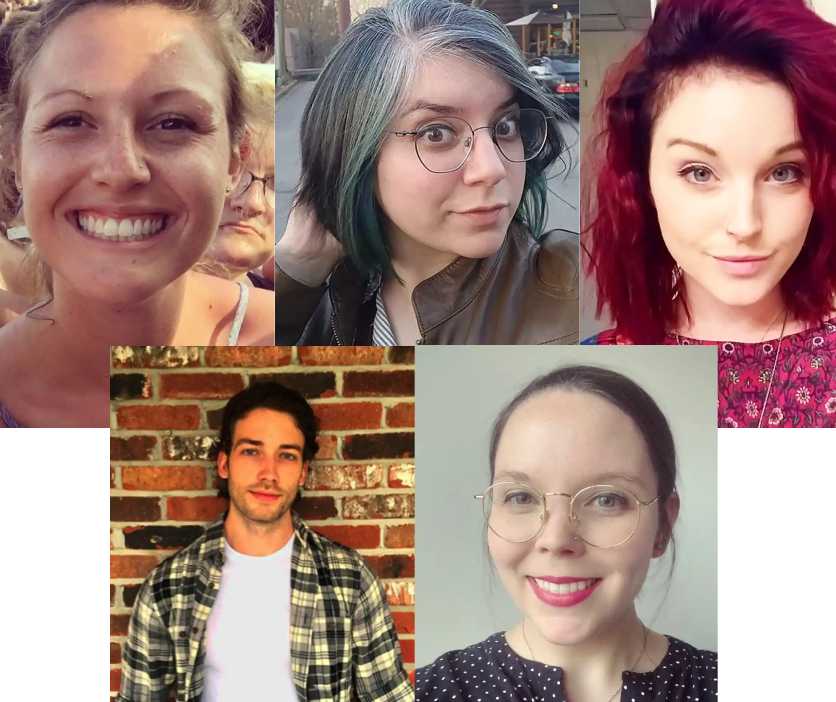
Graduate Students in the News
Megan Kleeschulte, a doctoral candidate in anthropology, received University’s Excellence in Community Engagement award and was also named the 2023 Graduate Volunteer of the Year.
PhD student Lateefa Abel was awarded a $5,000 McClure Scholarship for travel to Peru to conduct dissertation work with the Lambayeque Valley Biohistory Project.
PhD candidate Mac Archer was awarded a $25,000 American Dissertation Fellowship from the AAUW for her work on Haitian orphanages.
PhD candidate Jordan Schaefer won first place in the Southeastern Archaeological Conference’s Student Paper Competition for “A Phenomenological Study of 12th Unnamed Cave, a Dark-Zone Cave Art Site, through 3D Photogrammetric Modeling and Archaeoacoustics” at their annual meeting in Chattanooga.
The March “Student Spotlight” for the Center for Teaching and Learning Innovation featured PhD candidate Jenna Watson.
Jack Orebaugh Earns EURēCA Award
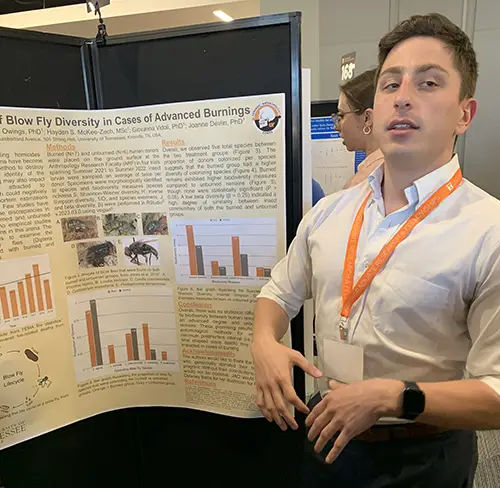
The annual Exhibition of Undergraduate Research and Creative Achievement (EURēCA), took place on April 25, 2023, with 1,179 student participants and 161 awardees. The event provides an opportunity for undergraduates to share their research through poster presentations judged by a panel of faculty. Anthropology major Jack Orebaugh received an Achievement Award in the College of Arts & Sciences, Social Sciences Division, for his poster entitled “Observations of Blow Fly Diversity in Cases of Advanced Burnings.” Haslam Postdoctoral Fellow Charity Owings served as his faculty mentor. Orebaugh went on to win second place in the On-Demand Student Poster Competition for his work “Ultrastructural Morphology of Blow Fly (Diptera: Calliphoridae) Ommatidia,” at the Entomological Society of America annual meeting in National Harbor, Maryland.
Student Excellence
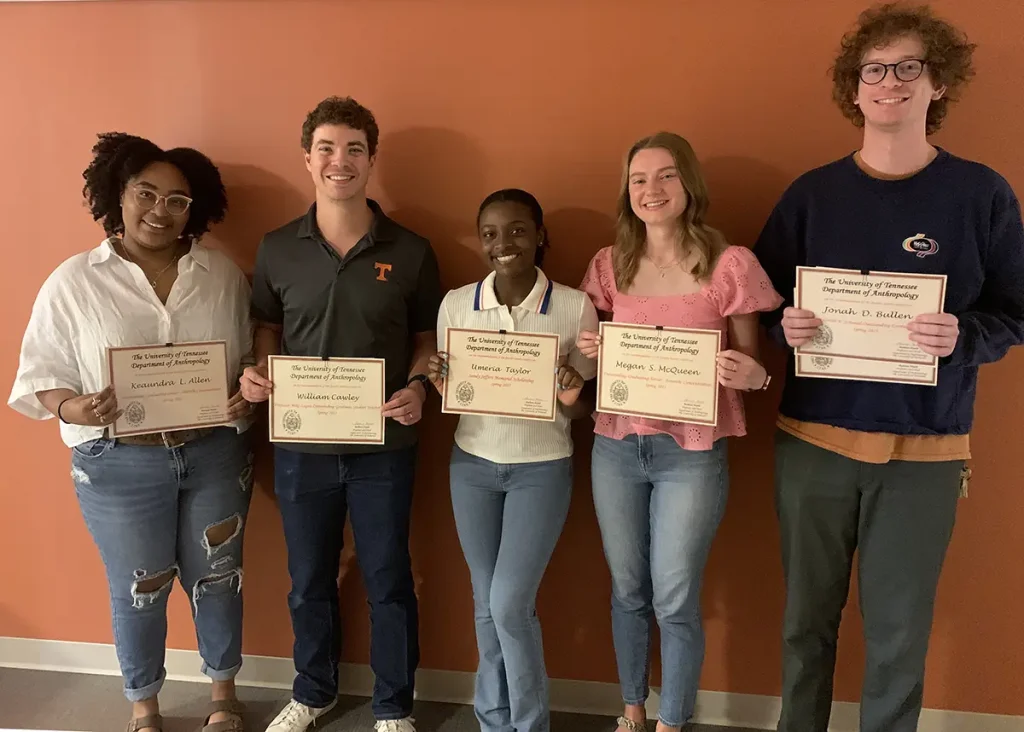
In spring 2023, the department recognized outstanding undergraduate and graduate students at our annual awards ceremony. The following students received awards: Keaundra Allen, Outstanding Graduating Senior in the DDHR concentration; Jonah Bullen, Outstanding Graduating Senior in the Major. Bullen also received the Gerald F. Schroedl Outstanding Graduating Senior Award; William Cawley, Professor Michael H. Logan Outstanding Graduate Student Teaching Award; Megan McQueen, Outstanding Graduating Senior in the Forensics concentration; Umeria Taylor, the Sandy Jeffers Memorial Scholarship.

The annual Exhibition of Undergraduate Research and Creative Achievement (EURēCA), took place on April 25, 2023, with 1,179 student participants and 161 awardees. The event provides an opportunity for undergraduates to share their research through poster presentations judged by a panel of faculty. Anthropology major Jack Orebaugh received an Achievement Award in the College of Arts & Sciences, Social Sciences Division, for his poster entitled “Observations of Blow Fly Diversity in Cases of Advanced Burnings.” Haslam Postdoctoral Fellow Charity Owings served as his faculty mentor. Orebaugh went on to win second place in the On-Demand Student Poster Competition for his work “Ultrastructural Morphology of Blow Fly (Diptera: Calliphoridae) Ommatidia,” at the Entomological Society of America annual meeting in National Harbor, Maryland.
From the Carrels
Anthropology graduate students are hard at work locally and globally. The McClung Museum recently hired doctoral candidate Sadie Counts as curatorial project manager. Her research focuses on the reappropriation of institutional spaces as means of dissent and resistance by Indigenous communities in East Tennessee.
As part of a multi-sited ethnographic research project including Mardi Gras in New Orleans and Carnival in Trinidad and Tobago, doctoral student Brian Boyce is currently studying masking and masquerade as an intrinsic part of the Mardi Gras tradition. His work examines these practices as important forms of cultural resilience and resistance in the African diaspora.
Doctoral candidate Mac Archer’s research focuses on the emotional labor of orphans and nannies to the functioning of orphanages in Haiti. She has worked during the last year as a consultant for the international NGOs Project Hope and Mercy Corps in Haiti. In November 2023, Archer was featured in an interview entitled “The Emotional Labor of Care-Affected Children” by the podcast Think Orphan.
Between teaching, taking classes, and writing theses and dissertations, anthropology graduate students are also finding time for exciting side projects. Doctoral students Taylor Bowden-Gray, Brigid Ogden, and Elizabeth Tarulis recently received an EXARC Experimental Archaeology Award for their project “Skin Deep: Determining the Efficacy of ZooMS Methods on Processed Intestinal Artifacts.” In collaboration with the Maryland Archaeological Conservation Laboratory, they have used Zooarchaeology by Mass Spectrometry to determine which animal species was used to make a condom recovered archaeologically from the fill of an 18th-century well in Maryland. Their work will also examine how manufacturing processes may affect artifact preservation and explore the efficacy of non-destructive analyses.
The Anthropology Graduate Student Association (AGSA) continues to manage the food pantry, a popular and essential free resource for students. AGSA provides snacks, shelf-stable food, household supplies, and hygiene products to all department members. This spring, AGSA members are also working with the Undergraduate Anthropology Association (UAA) to plan a panel that will include advice to undergraduates about the process of searching for and applying to graduate programs. AGSA has also been holding regular social events to allow graduate students to get together in a more informal setting, with faculty invited to join once a month. They celebrated the end of the fall semester by attending Emo Karaoke night, where students ate holiday cookies and performed their favorite Emo hits together.